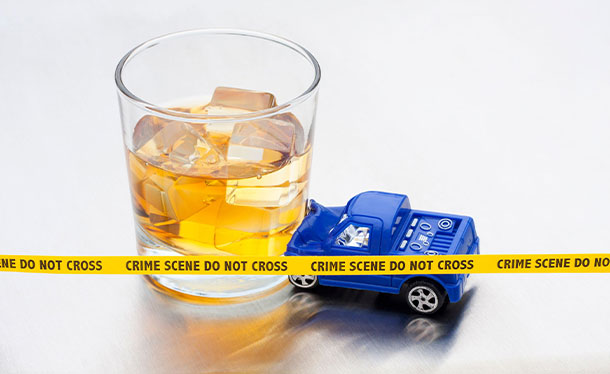Third-degree driving while impaired (DWI) is a gross misdemeanor in Minnesota. Though this is less severe than a felony DWI, it is more serious than a simple misdemeanor, with penalties that include jail time, fines, and license revocation. If you are charged with a third-degree DWI, contact an experienced defense attorney to protect your rights as you face this charge.
What counts as 3rd-degree DWI in Minnesota?
Third-degree DWI in Minnesota occurs when a person is driving while intoxicated with one aggravating factor. Under Minnesota law, an aggravating factor is any of the following:
- an alcohol-related license revocation or a DWI conviction within the past 10 years
- having a blood alcohol concentration (BAC) of 0.16 or more at the time of the offense, or
- having a child under 16 years old in the vehicle during the offense if the child is younger than the driver by more than 36 months.
Another instance that would constitute a third-degree DWI is when a person is driving while intoxicated then refuses to submit to a chemical test such as breath, urine, or blood sampling. Refusal of a chemical test combined with any of the above-mentioned aggravating factors can further enhance the criminal charges or sentence.
What is the penalty for 3rd-degree DWI in Minnesota?
The penalties for a 3rd-degree DWI conviction in Minnesota may include:
- Jail time of up to one year, with a mandatory minimum of 30 days, of which 48 hours minimum must be served at the local jail
- Fines up to $3,000
- License revocation of up to one year, depending on the aggravating factor (we’ll discuss more of this in the next section)
- Impounding of license plate
- Up to six years of possible probation
- Community work service
- Substance abuse counseling or treatment, if the court finds necessary.
License revocation is an administrative sanction, not a criminal penalty. A driver doesn’t have to be convicted of the criminal charge in order to get their license revoked. They have to challenge the administrative penalties separately in an implied consent hearing if they wish to keep their driving privileges.
If a driver has had their license revoked for an alcohol-related reason – even if they weren’t convicted of a crime – it could enhance any DWI charges they may face in the future. It can also lead to indirect effects such as limited mobility and increased auto insurance rates.
This is why it’s important to get an experienced DWI defense attorney as soon as you get charged with DWI in Minnesota. A skilled lawyer will know how to negotiate for a lesser sentence, avoid certain penalties, or have the charges dropped entirely in cases that warrant a dismissal.
How long do you lose your license on a 3rd-degree DWI in Minnesota?
If you’ve been charged with a third-degree DWI in Minnesota, you could lose your license for up to one year, depending on the aggravating factor:
- If this was your first offense but your BAC was 0.16 or higher, you may lose all your driving privileges for one year OR you may keep a restricted driver’s license but with an ignition interlock device installed in your vehicle for one year.
- If this was your first offense but you had a child in your vehicle, you may lose all your driving privileges for one year OR you may keep a restricted driver’s license but with an ignition interlock device installed in your vehicle for one year.
- If this was your first offense but you refused a chemical test, you may choose between these penalties: a) 15 days of zero driving privileges, followed by limited license for the remainder of the one-year period; or b) full driving privileges for the year but with the use of an ignition interlock device.
- If your BAC was under 0.16 but you had a prior offense, you may lose all your driving privileges for one year OR you may keep a restricted driver’s license but with an ignition interlock device installed in your vehicle for one year.
What to expect at arraignment for 3rd-degree DWI in Minnesota
The arraignment is your first court appearance after you’ve been arrested. It is primarily an initial hearing where you’ll find out whether or not your case goes to trial.
At the arraignment, the judge will read the charge(s) against you and state your rights. They will then ask for your plea. If you plead Guilty, the judge will give a sentence. If you enter a Not Guilty plea, the court will send the case to an omnibus hearing or a trial at a later date.
Contact DWI Defense Attorney Jeff Dean
A third-degree DWI charge can have a long-term impact on your work, daily routine, and future prospects. As soon as you are arrested or charged, get the help of highly trusted Minnesota DWI defense lawyer Jeff Dean. Mr. Dean has been protecting Minnesotans for over 26 years, obtaining Not Guilty verdicts, dismissals, lowered charges and favorable plea bargains for his clients.
Talk to Jeff Dean about your DUI or DWI charges. Call (612) 805-6916 today.


